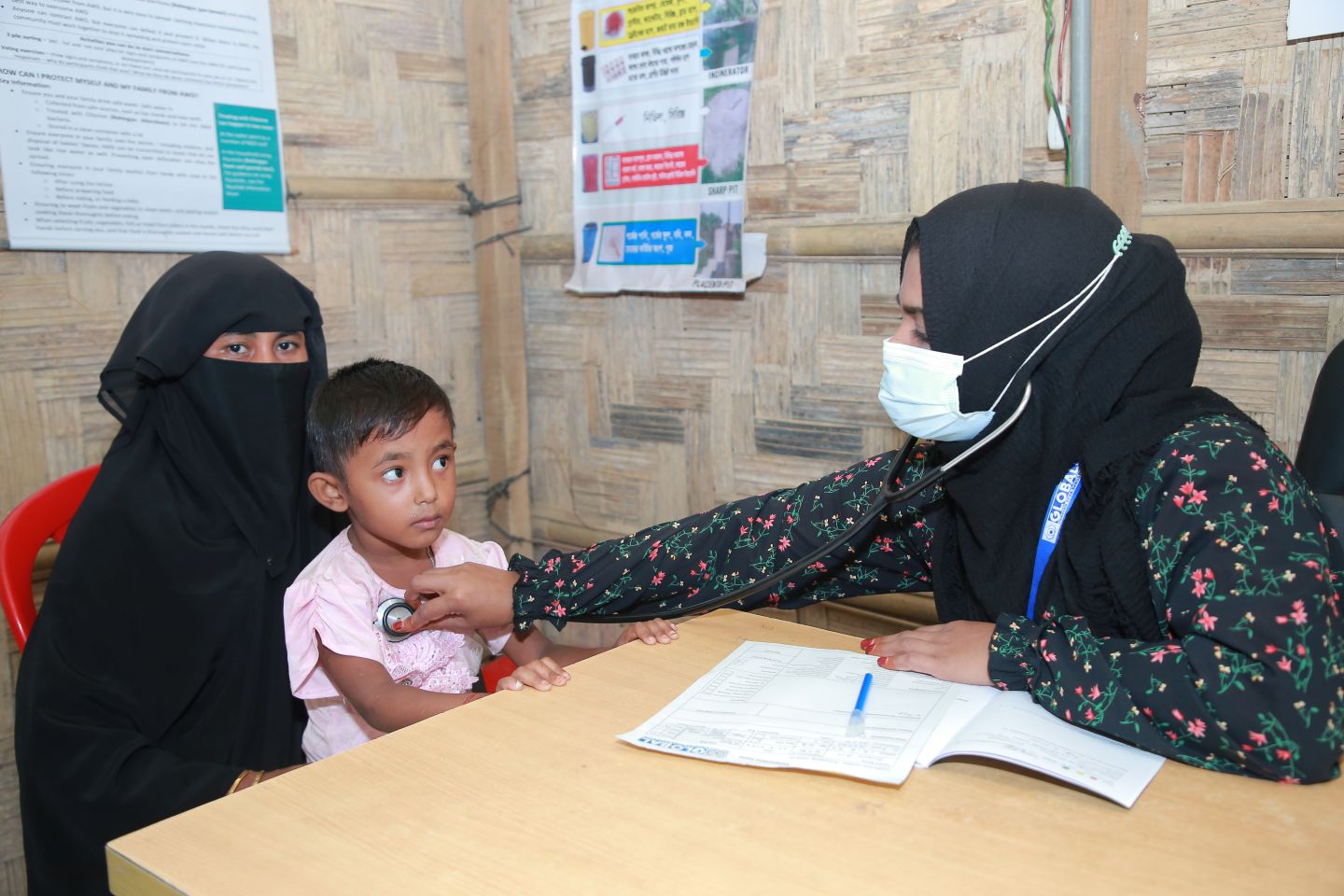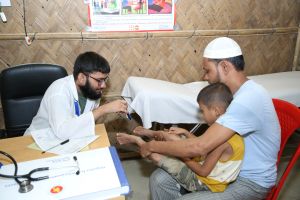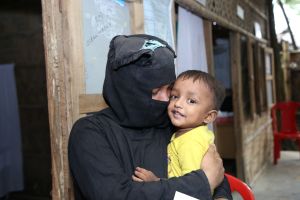In Bangladesh, over 836,000 Forcibly Displaced Myanmar Nationals (FDMN) are in need of humanitarian assistance. They have faced discrimination in their native land due to various imposed restrictions, effectively denying them citizenship. This has led to numerous human rights violations, including limited access to healthcare services. Currently, they face significant health risks, and addressing their health needs has become a challenge. The increasing number of FDMN and their congested living conditions in camps have led to an overwhelming rise in health risks.
Global Unnayan Seba Sangstha (GUSS), in collaboration with Muslim Aid USA (MAUSA), has established a health post in Ukhiya to ensure access to healthcare for the people living in the camp. Thousands of individuals have benefited from this health post. Through this initiative, GUSS is contributing to the implementation of SDG Goal 3, which aims to ensure health and well-being for all. Regular antenatal and postnatal checkups, family planning, treatment for severe acute malnutrition (SAM) and moderate acute malnutrition (MAM), and other health concerns are addressed on a routine basis through the health post.
Fighting Against Disease
Fever, acute respiratory infections, and diarrhea are major health issues among the camp residents. Additionally, hypertension, diabetes, vaccine-preventable diseases, and waterborne illnesses are prevalent. GUSS’s health post is dedicated to working with Rohingya people in their battle against these diseases.
Shafika Begum resides in Camp 1(E). Whenever her two young children fall ill, she visits the health post. She initially brought her younger child when he was suffering from diarrhea. She was amazed by the service, medication, and her child’s recovery. This positive experience led her to rely on the health post’s service for her elder son, who fell ill just three days later.
“My whole family appreciates the health post and comes here when they need help. We all want this health post to stay until the day we can return home,” she expressed with happiness.
Safe Maternity and Childcare
The Health Post offers support for maternal, reproductive, and child healthcare to ensure safe maternity, family planning, proper newborn care, and reduced infant mortality. The Health Post is equipped with professional and highly qualified doctors, paramedics, nurses/midwives, and pharmacists. They provide regular antenatal and postnatal care for pregnant and lactating women.
Sharmina Akhtar, a 20-year-old young mother, visits the health post in Ukhiya seeking treatment for her son’s urinary and stomach issues, such as diarrhea.
“We feel very comfortable due to all the medical support and the availability of medicine here. Our boundless gratitude and prayers go to those who help us. We hope they will continue to support us.”
Availability of Medicine
Understanding the challenging financial circumstances of FDMN, the health post provides prescribed medicines completely free of cost. This supply of free medicine ensures proper treatment. In addition to medicines, nutrition supplements, face masks, and hand sanitizers are provided by the health post’s doctors.
Advocacy and Counseling
The Health Post advocates for outpatient care services, check-ups, emergency response, necessary prescriptions, and dietary and exercise suggestions on a regular basis. In cases of delivery and critical conditions, the Health Post refers patients to suitable nearby clinics or hospitals.
Creating Awareness
Repetitive awareness sessions are organized on topics including menstrual hygiene, nutrition, infant feeding, family planning, regular healthcare, sanitation, and immunization of newborns, among others. Infectious diseases are prevalent among FDMN due to inadequate vaccination coverage, malnutrition, overcrowding, unsanitary conditions, and lack of access to safe water. Creating awareness has contributed significantly to solving and reducing many of these issues.





